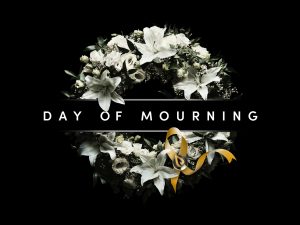Even in a court of law, people with aphasia are often believed to have diminished mental capacity. It’s a common misconception about the communication disability, even though it doesn’t typically affect an individual’s ability to reason or make judgments.
Brock University researcher Richard Welland’s recent study on aphasia in a courtroom context highlights the need for building understanding of communication disabilities, especially adult-onset conditions like aphasia.
May is Speech and Hearing Month in Canada, a month devoted to increasing public awareness of communication health issues.
Welland, an associate professor and speech-language pathologist in the Department of Applied Linguistics, recently attended the Speech-Language and Audiology Canada conference to present his research.
Aphasia is a communication disability that affects language comprehension and production. It is most often the result of a stroke damaging the brain’s language network.
Ranging from mild to severe, aphasia can interfere with a person’s ability to apply rules of language when listening to and speaking to others.
Welland first became interested in aphasia in courtroom settings after reading about the case of Regina vs. W. H., a man accused of sexual molestation in 2006. Before his trial, W. H. suffered a stroke and developed severe aphasia.
When severe, aphasia can mask the person’s ability to demonstrate competency.
Although nurses and a social worker testified that they could communicate with W. H. by adapting the length of their questions and using gestures, a psychiatrist and psychologist both claimed that his aphasia made him unfit to stand trial.
“The judge accepted their testimony and rejected W.H.’s alternative communication modes of gesture and short verbal responses — without any testimony from a speech-language pathologist, the most appropriate professional to assess a person with aphasia,” Welland notes.
“As a result, W. H.’s alleged victims were denied the opportunity to give their testimony against W. H., and W. H. was denied the opportunity to clear his name.”
Welland went on to review 26 more court cases involving persons with aphasia. He found that few judges or lawyers understood that for most people with aphasia, there are ways to communicate that do not compromise the admissibility of their testimony. Furthermore, only two of the 26 cases included testimony from speech-language pathologists.
The lack of expert involvement is an issue. Studies show that although 65-68 per cent of health-care professionals (including medical doctors) are aware of aphasia as a condition, only 10-23 per cent of them have a basic knowledge of what the condition entails.
That level of understanding is only slightly better than that of the general public, which ranges from one to 10 per cent.
“When severe, aphasia can mask the person’s ability to demonstrate competency. In the courtroom, lawyers and judges can misinterpret language difficulties as a lack of mental capacity, an attempt to mislead the court during testimony or to hold up court proceedings, or a way to avoid punishment,” Welland explains.
“Speech-language pathologists can assess the communication disabilities associated with aphasia and recommend ways to accommodate them that are applicable to the courtroom.”
Although exact numbers of people living with aphasia in Canada are unknown, international studies have shown that roughly one-third of stroke survivors have aphasia. In 2016, the Heart and Stroke Foundation of Canada estimated that some 400,000 stroke survivors live across the country, suggesting that roughly 120,000-140,000 Canadians may experience the effects of aphasia.










